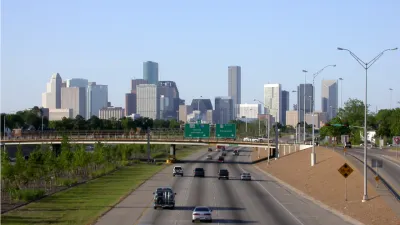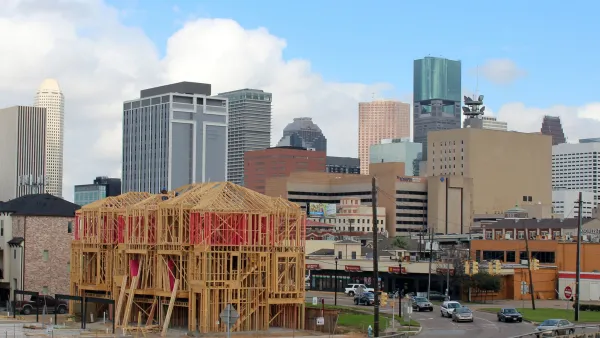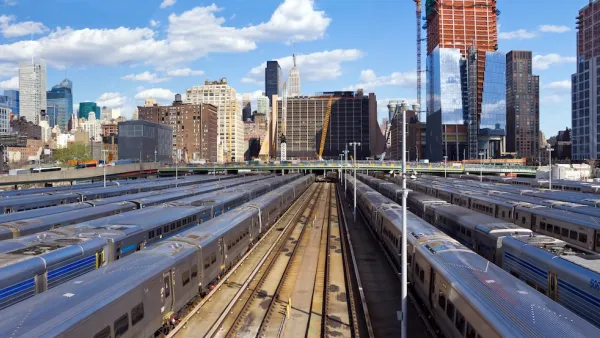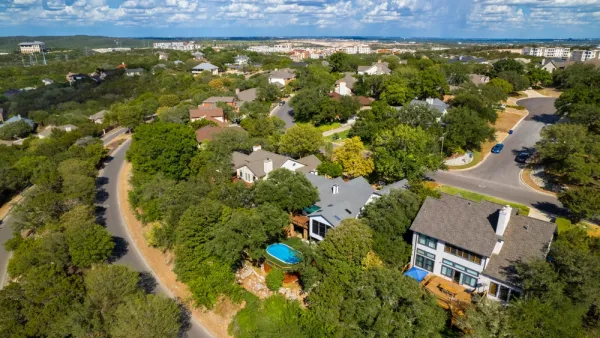A researcher at Rice University finds that proclamations of Houston’s affordability, gentrification, and growth are just myths.

Ryan Holeywell of The Urban Edge looks at a new report produced by Lester King, a Rice researcher and urban planner, where King challenges four common “myths” about the Houston’s gentrification, population growth, affordability, and development in the Inner Loop. Among the findings is that the city's reputation for housing affordability fails to take into account that pay for workers is often lower and transportation costs higher than other large cities around the US.
“When transportation costs are added to housing costs as a percentage of income, many areas along the periphery of the city also become less affordable,” King writes. That means housing is cheaper in Houston, but not necessarily more affordable…
Houston ranks 26th for affordability, according to data King cites from the Center for Neighborhood Technology. The average Houstonian spends 46 percent of his income on housing and transportation costs. “This conflicts with Houston’s marketability as the affordable capital of the country,” King writes in his report.
Lester also finds that the anticipated growth of the city – 3.5 million new residents by 2035 – assumes that all of those people will move inside the city limits, but current trends show that the new residents will be absorbed across the Houston-Galveston metro region (a much larger area). The assumption that Houston will be absorbing all of those people, King’s reports states, “may be indirectly eroding its affordability and middle class wealth base, since land values are increasing to meet the needs of 3.5 million people, who are in fact not moving here at all.”
FULL STORY: Here Are Four Myths About Houston’s Growth

Analysis: Cybertruck Fatality Rate Far Exceeds That of Ford Pinto
The Tesla Cybertruck was recalled seven times last year.

National Parks Layoffs Will Cause Communities to Lose Billions
Thousands of essential park workers were laid off this week, just before the busy spring break season.

Retro-silient?: America’s First “Eco-burb,” The Woodlands Turns 50
A master-planned community north of Houston offers lessons on green infrastructure and resilient design, but falls short of its founder’s lofty affordability and walkability goals.

Test News Post 1
This is a summary

Analysis: Cybertruck Fatality Rate Far Exceeds That of Ford Pinto
The Tesla Cybertruck was recalled seven times last year.

Test News Headline 46
Test for the image on the front page.
Urban Design for Planners 1: Software Tools
This six-course series explores essential urban design concepts using open source software and equips planners with the tools they need to participate fully in the urban design process.
Planning for Universal Design
Learn the tools for implementing Universal Design in planning regulations.
EMC Planning Group, Inc.
Planetizen
Planetizen
Mpact (formerly Rail~Volution)
Great Falls Development Authority, Inc.
HUDs Office of Policy Development and Research
NYU Wagner Graduate School of Public Service




























